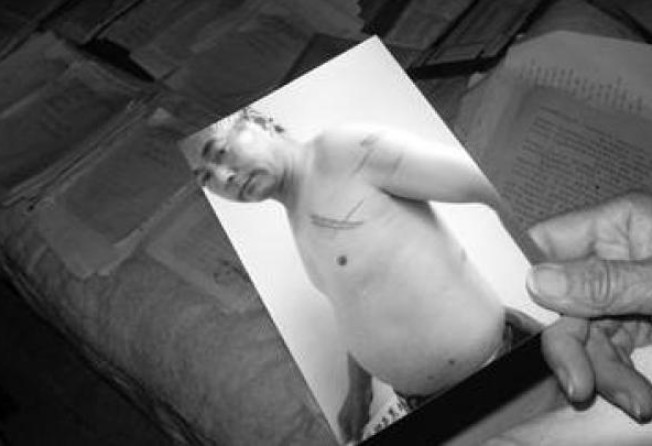
Anhui man secretly detained after land dispute hearing

A villager from Anhui filed a report with police on Wednesday, claiming he was arrested by unknown persons, illegally detained and tortured after appearing at a land dispute hearing at the Supreme People’s Court in Beijing.
Wang was allegedly detained for two months and tortured with a poker during the period, according to media reports.
In 2003, Wang – a villager from Guomen village in Biyang town, Yi county, Huangshan – sued the county government for an administrative omission over a land dispute and subse quently lost the case. He appealed to the Supreme People’s Court in Beijing shortly after.
Wang came to Beijing on September 21 this year with an official invitation letter issued by the Supreme People’s Court, in the hope of settling the dispute.
Wang was heading to Beijing South Railway station on his way back when he was grabbed by a group of unknown assailants. “I was settled somewhere in Wanggezhuang near South Sixth Ring Road in Beijing for the first twenty days or so,” according to Wang. “I have no idea where I was brought to afterwards.”
“The persecutors burnt my skin with a hot iron on November 18. I was released two days after,” he said.
“We hadn’t heard from him for two months since he left for Beijing in September. His phone service was disconnected,” Wang’s wife Jiang Liqin said.
Pictures of Wang showing his wounds were posted on Weibo and captioned “branded with burning iron by bad police” on November 21, a day after Wang was released.
Wang reported the matter to the police station close to where he was detained. Police put his case on record and took pictures of his wounds as evidence.
A dozen policemen inspected a residential site in Wanggezhuang described by Wang, but the site had already been vacated.
“We will contact the landlord for further investigation,” said a police officer, “we are obtaining evidence for Wang’s case.”
According to Wang, he had revisited Wanggezhuang after his release on November 27 in an attempt to find the site where he was detained. “I happened to see some government officials from Biyang town,” he said. They took him back to Anhui.
Biyang town mayor Wu Qianan acknowledged the incident, “We saw the post on Weibo on November 21 saying that he was injured, so we sent people to find him,” according to Wu. “His wife and son also told us about the torture.”
Wu said that he did not know where Wang was taken to, nor who the persecutors were. “He didn’t report to the police after he was hurt. It’s difficult for us to investigate.”
Hong Jianchun, secretary of Yi county, said in a phone call that Wang’s case “has nothing to do with us” before hanging up the phone.
The incident came as new amendments were passed to China's criminal laws aimed at improving police conduct and human rights.
The enactment of new amendments to the Procedural Requirements for Handling Criminal Cases for Public Security Bureau took place on Wednesday, as a supplement to the revised Criminal Procedure Law (CPL) passed by the National People’s Congress in March.
The amendment includes provisions to outlaw evidence obtained through torture, ensure suspects to have access to a lawyer, and increase protection for juveniles.
China’s practice of secretly detaining ordinary citizens or party members suspected of misconduct has long raised human rights concerns. The recent detention of human rights activist Liu Xiaobo and the nephew of Chen Guangcheng, as well as the method of investigation in Bo Xilai’s trial, brought to the fore China’s legal procedural violations.

According to the newly revised Criminal Procedure Law, Shuanggui, or “double designation”, the long-standing legislative measure used to detain any party member or ordinary individual suspected of misconduct in undisclosed locations, will no longer be authorised by law.
The revised version of the Procedural Requirements for Handling Criminal Cases for Public Security Bureau and CPL will both take effect on January 1, next year.
Lawyers and reformers have largely welcomed the change. Local Chinese media lauded the amendments as a significant step forward.
The revisions, however, have received scrutiny at home and abroad, as questions remain regarding the government’s commitment to implementing these provisions in practice.